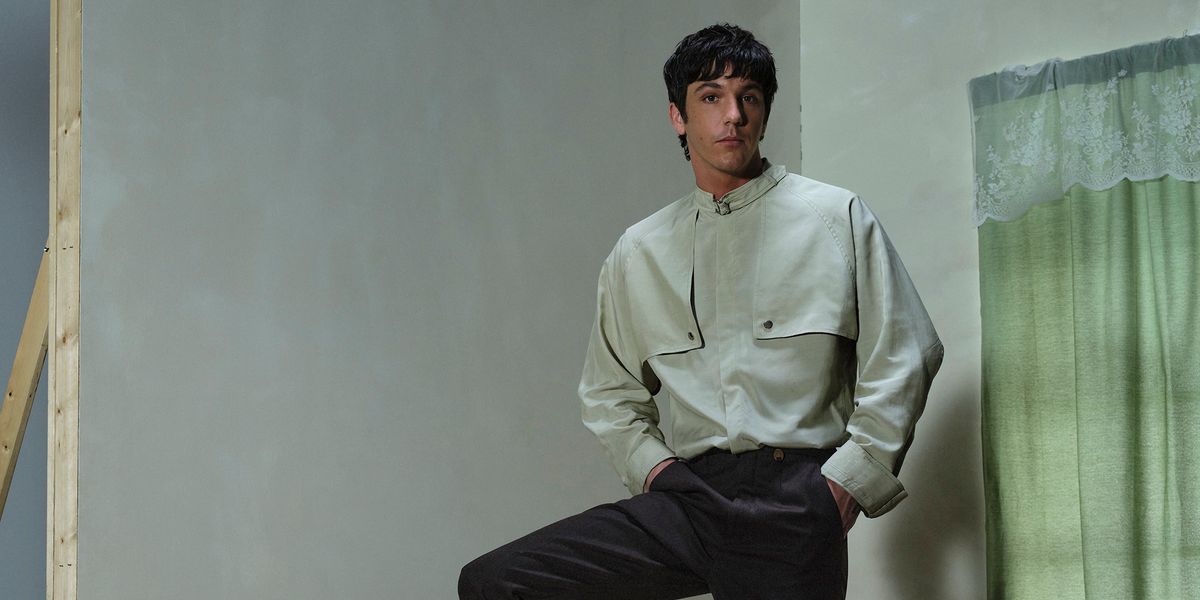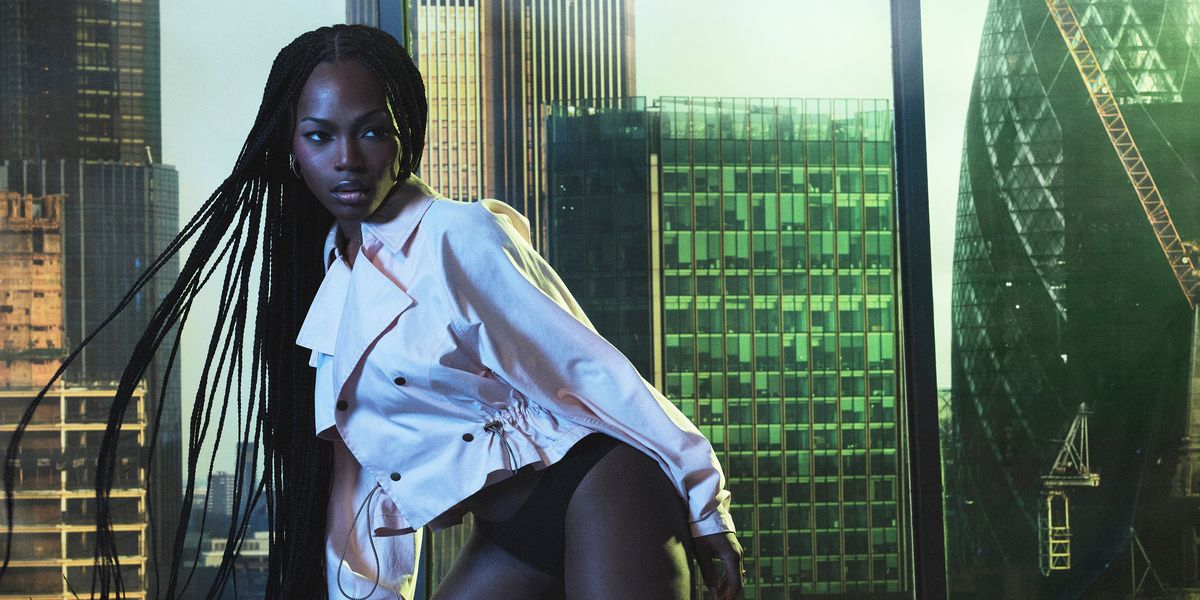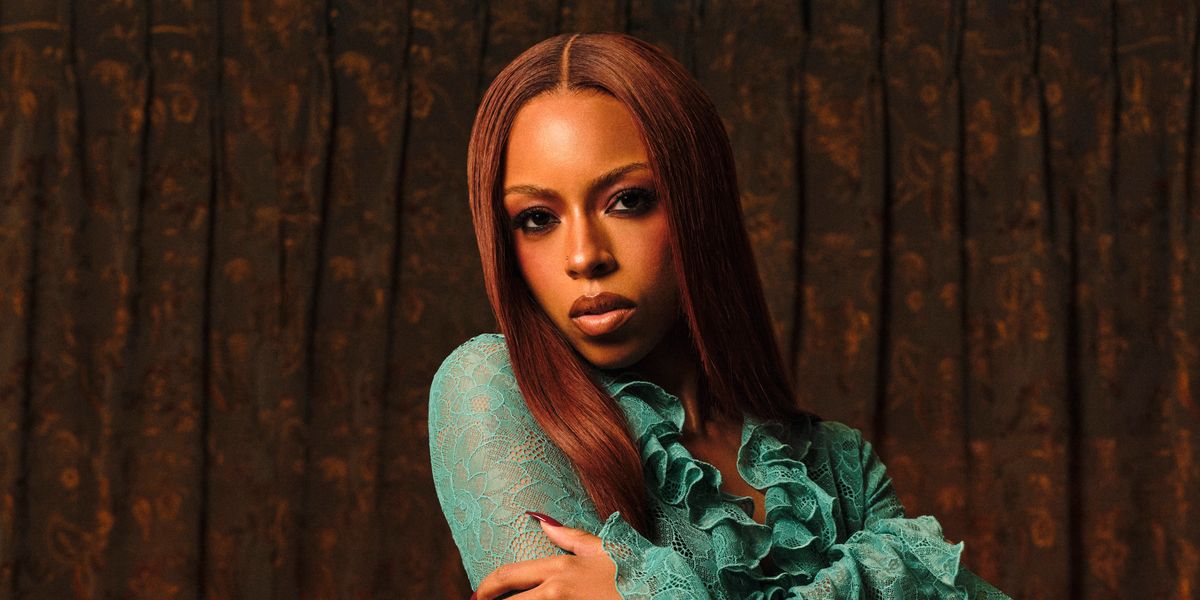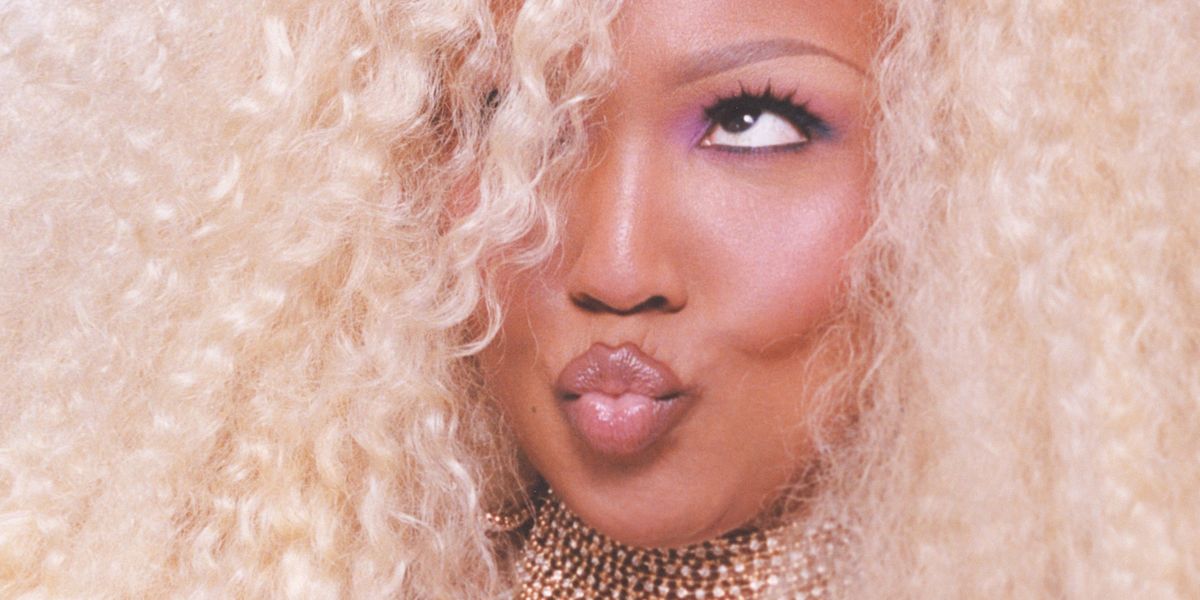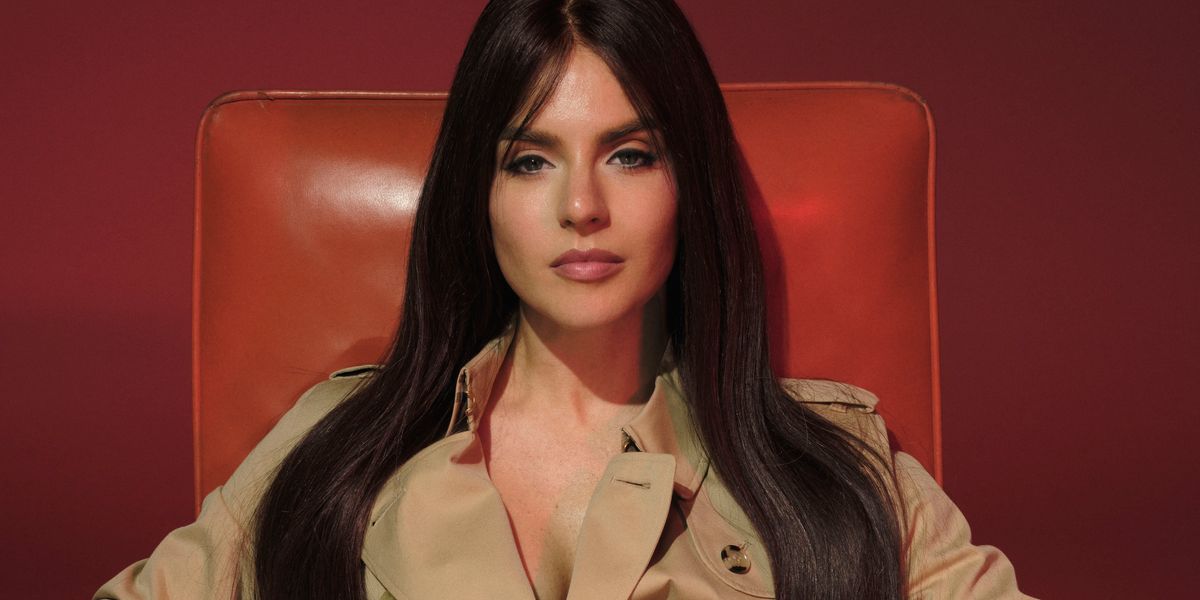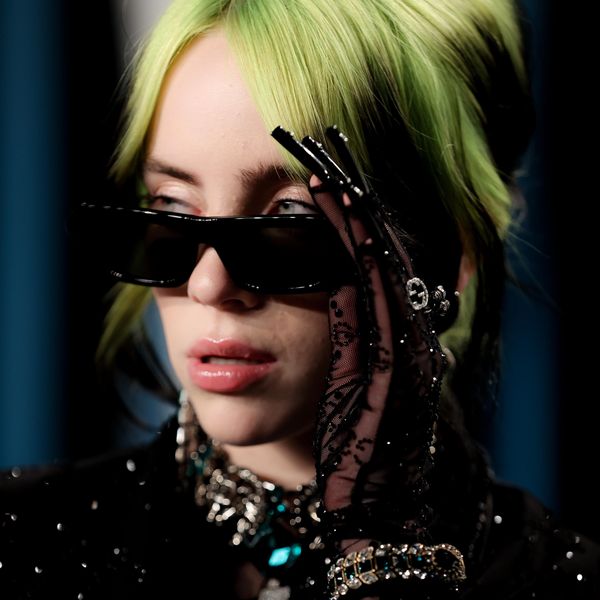
Billie Eilish Internet Drama, Explained
by Dante Silva
Jun 15, 2021
Something about Billie Eilish evokes an urgent fervor, in both fans and foes alike — somehow her name always finds itself in headlines, like "BEWARE THE POP PRINCESS ROMANTICIZING DEATH" or "BILLIE EILISH'S [SOPHOMORE LP] GLAMORIZES MENTAL ILLNESS." Her recent British Vogue cover used the term "Internet-Breaking" which, for Eilish, has become a regular occurrence over the past few years. Her first EP is called don't smile at me but, naturally, everyone is staring, running to the Twitter threads excited to see what unfolds next.
Which makes sense because, much like the generation she's a part of, Eilish prefers to veer towards the controversial. As she told PAPER, "I'm really different from a lot of people, and I kind of try to be." She even refers to herself, infamously, as the bad guy.
She's not the archetypal contrarian either, refusing to fall into any existing tropes ("I would rather die than be artificial," she's quoted saying).
Her latest work is no exception. The singer recently released "Lost Cause," a track from her upcoming album, surely a nod to an ex — the lyrics puckishly interrogate them, reading "I know you think you're such an outlaw/ But you got no job." It was the accompanying video and Instagram posts, though, which confirmed Billie as the true, John Wayne-esque outlaw.
Or perhaps "outlaw" is too strong of a term — Eilish only shared photos of the video, in which she's seen hanging out with a group of girlfriends at a slumber party (reminiscent of an earlier, "I Kissed a Girl" Katy Perry).
The most controversial aspect was the caption "I love girls," to which fans were quick to respond; the most liked comment on the photo reads "ARE YOU COMING OUT," and another, more critically, "if you say you straight after this ISTG." There's a hint of exhaustion in their words, reading as if they've done this before (or many times), which isn't entirely false. Eilish has been accused of queer-baiting before, or profiting off of queer identity without explicitly confirming (it's worth noting she's also been an outspoken advocate for the broader queer community).
Her track "Wish You Were Gay" received similar criticisms, to which she responded the lyrics were "not intended to be an insult." And yet, whether intended or not, there are fair criticisms to be made — especially amidst concerns over the growing corporatization of Pride, and the recently circulated photos of her boyfriend's alleged racist and homophobic comments — causing some Twitter users to remark "we are literally watching the downfall of Billie Eilish."
Others aren't so sure:
Might be a hot take but if Billie Eilish wants to dance around and feel sexy with other women, that\u2019s not queer baiting— Pheen \ud83c\udf31 (@Pheen \ud83c\udf31) 1623584361
the idea that a real person can \u201cqueerbait\u201d is so bizarre and frankly very dangerous bc it implies that someone owes it to us to come out/explicitly define their sexuality just bc they\u2019re in the public eye— carey (@carey) 1623628954
my only thoughts on billie eilish \u201cqueerbaiting\u201d is that more than 100 anti-trans bills have been introduced in state legislatures this year and they are all infinitely more harmful than a 19 year old publicly exploring her sexuality without labels— matt (@matt) 1623731634
In any case, the "downfall" of Eilish is hard to imagine. The 19-year-old has cultivated an almost unprecedented online presence, becoming the face of a generation that seemingly can't stop talking about her (and dressing like her, dying their hair like her). Besides, Eilish herself doesn't seem too phased by any of it — her latest instagram post reads "I'm tireeeddddddd."
One can only guess what the caption refers to — perhaps to her time in the industry at large, or to the recent controversies, or even to her status as something of a "role model."
Her fans, though, are certainly tired too (and deserve a long, long rest after the week's events). It's sometimes hard to discern whether they're excited for what comes next, or concerned, or an odd combination of the two. Perhaps Eilish herself said it best — "People are terrified of me, and I want them to be."
Still, they're certainly watching.
Photo via Getty/ Rich Fury/ VF20
From Your Site Articles
- Billie Eilish Launches "A Letter to Your Future Self" Website - PAPER ›
- Next Models Adds Billie Eilish To Its Roster - PAPER ›
- Billie Eilish Responds to Body Shaming Criticism of Her Swimsuit ... ›
- Billie Eilish Opens Up About Growing Up Famous - PAPER ›
- Billie Eilish Claps Back at Trolls Who Say She's Flopping - PAPER ›
- Billie Eilish Calls Out Benny Blanco Over Charlie Puth Attacks - PAPER ›
- Billie Eilish Calls Her Tourette's Syndrome "Exhausting'" ›
- Billie Eilish Splits From Boyfriend Matthew Tyler Vorce After Cheating Rumors ›
- Billie Eilish, Jesse Rutherford Criticized For Age Gap in Rumored Relationship ›
- Billie Eilish and Jesse Rutherford Make Red Carpet Debut ›
- Billie Eilish Is “Really Happy About” Relationship With Jesse Rutherford ›
- Billie Eilish Hosts Festive Star-Studded 21st Birthday Bash ›
- Billie Eilish’s Family Home Was Doxxed on the Citizen App ›
- Billie Eilish’s Family Home Was Doxxed on the Citizen App ›
Related Articles Around the Web
MORE ON PAPER
Music
Role Model Isn’t In Kansas Anymore
Story by Tobias Hess / Photography by Richie Talboy / Styling by Angelina Cantú / Grooming by Jerrod Roberts / Set design by Allegra Peyton
Story by Tobias Hess / Photography by Richie Talboy / Styling by Angelina Cantú / Grooming by Jerrod Roberts / Set design by Allegra Peyton
14 August
Internet
Quen Blackwell Takes Over
Story by Ivan Guzman / Photography by Richie Talboy / Styling by Angelina Cantú / Makeup by Kimora Mulan / Hair by Malcolm Marquez / Nails by Kimmie Kyees / Set design by Allegra Peyton
Story by Ivan Guzman / Photography by Richie Talboy / Styling by Angelina Cantú / Makeup by Kimora Mulan / Hair by Malcolm Marquez / Nails by Kimmie Kyees / Set design by Allegra Peyton
11 August
Music
Ravyn Lenae Enjoys the View
Story by Erica Campbell / Photography by Richie Talboy / Styling by Angelina Cantú / Makeup by Matthew Fishman / Hair by Jacob Aaron Dillon / Nails by Kimmie Kyees / Set design by Allegra Peyton
Story by Erica Campbell / Photography by Richie Talboy / Styling by Angelina Cantú / Makeup by Matthew Fishman / Hair by Jacob Aaron Dillon / Nails by Kimmie Kyees / Set design by Allegra Peyton
04 August
Beauty
Lizzo Is Living and Loving IRL
Story by Mickey Boardman/ Photography by Williejane Dent / Styling by Wayman + Micah / Hair by Jared Henderson / Makeup by Alexx Mayo / Nails by Eri Ishizu / Set design by Allegra Peyton
Story by Mickey Boardman/ Photography by Williejane Dent / Styling by Wayman + Micah / Hair by Jared Henderson / Makeup by Alexx Mayo / Nails by Eri Ishizu / Set design by Allegra Peyton
31 July
Music
JoJo Wants To Feel Alive
Story by Ivan Guzman / Photography by Richie Talboy / Styling by Angelina Cantú / Makeup by Porsche Cooper / Hair by Dom Forlette / Set design by Allegra Peyton
Story by Ivan Guzman / Photography by Richie Talboy / Styling by Angelina Cantú / Makeup by Porsche Cooper / Hair by Dom Forlette / Set design by Allegra Peyton
25 July
